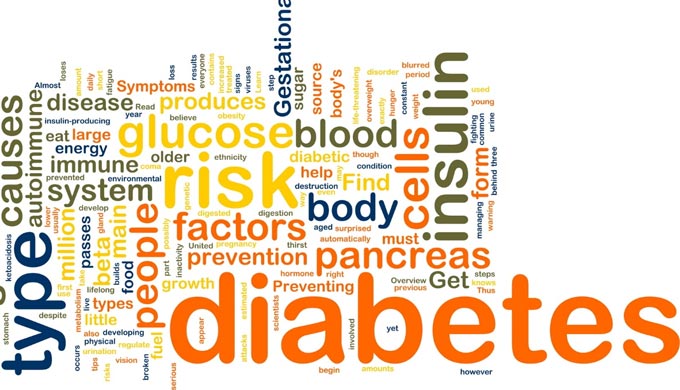Time has a way of stopping us in our tracks. We can get so caught up in today’s society that we may not realize what we do, what we eat, how we are living – and all can contribute to increases for risk for such diseases like diabetes.
 Sonia Ramirez
Sonia Ramirez
Lifestyle
Diabetes: The Silent Enemy

Photo: thirdage.com
Diabetes does not discriminate by race, ethnicity, gender, age, socioeconomic status, or location. According to the American Diabetes Association, in 2012, 29.1 million Americans, or 9.3% of the population, had diabetes. Approximately 1.25 million American children and adults have type 1 diabetes. And, diabetes remains the 7th leading cause of death in the United States in 2010, with 69,071 death certificates listing it as the underlying cause of death, and a total of 234,051 death certificates listing diabetes as an underlying or contributing cause of death.

Photo: blog.perkinswill.com
In Texas, Diabetes is the 6th leading cause of death, and in Bexar County, it is the 4th leading cause of death. According to the San Antonio University Health System, as of 2012, Texas has diagnosed 1.8 million people with Diabetes, and there are approximately 440,468 Texans who remain undiagnosed.
In Bexar County alone, 137,009 people have been diagnosed with diabetes.

Photo: Sonia Ramirez
My mother was a strong and vibrant woman full of life. She was a nurse for over 42 years. So to my surprise when we found out Type 1 diabetes had invaded her body, we were shocked. How could this disease just come and take away, little by little, my mother who was once so healthy and strong-willed. Diabetes can affect anyone at any time. Below are some breakdowns which I hope will bring awareness and provide information on how to help your loved ones live and hopefully defeat this disease.
Diabetes Basics

Photo: lchdhealthcare.org
“Diabetes causes more deaths a year than breast cancer and AIDS combined. Having diabetes nearly doubles your chance of having a heart attack. The good news is that good diabetes control can reduce your risks for diabetes complications,” as stated by the American Diabetes Association.
“Type 1 diabetes is caused by genetics and unknown factors that trigger the onset of the disease; type 2 diabetes is caused by genetics and lifestyle factors.”
“Pregnant women who have never had diabetes before but who have high blood glucose (sugar) levels during pregnancy are said to have gestational diabetes.”
To avoid further complications, proper monitoring and staying informed can help you better understand and live with your type.
Healthy Eating

Photo: www.pexels.com
Learning to incorporate well planned out meals and cooking techniques is essential in the battle against this disease.
“People with diabetes can eat the same foods the family enjoys. Everyone benefits from healthy eating so the whole family can take part in healthy eating. It takes some planning but you can fit your favorite foods into your meal plan and still manage your blood glucose, blood pressure and cholesterol,” states the American Diabetes Association.
Exercise and Fitness

Photo: www.pexels.com
Staying active is also an important component in the fight against diabetes. Each year the American Diabetes Association holds a Step Out: Walk to Stop Diabetes. “Step Out takes place in 95 cities nationwide. With more than 100,000 walkers who are walking for so many, there are so many stories, and so many who have been touched by diabetes,” says the site.
Making sure your loved one gets on a daily routine of exercising is crucial and participating in this walk is a great way to show your love and support for them. These walks also take place in and around the Hill Country in such areas as San Antonio and Austin.
For more information in your area and what you can do to get help, visit the Find Your Local Office page on the website.
Advocacy and Research

Photo: Sonia Ramirez
Having diabetes doesn’t have to be the end of the road for you or your loved ones. Get informed by taking classes such as those offered at medical centers around your area like Central Texas Medical Center (CTMC) in San Marcos. They offer support and information on how to manage your diabetes.
Take action at the State Level. Every letter and phone call can make a difference in creating change and support for more research. On December 19, 2015, “The American Diabetes Association applauded Congress and President Obama for enacting an omnibus spending bill that will boost funding for important diabetes research and prevention programs.”
Together we can all help by getting out and making a difference in the choices we make, and hopefully one day celebrate a cure for this disease.
References:

